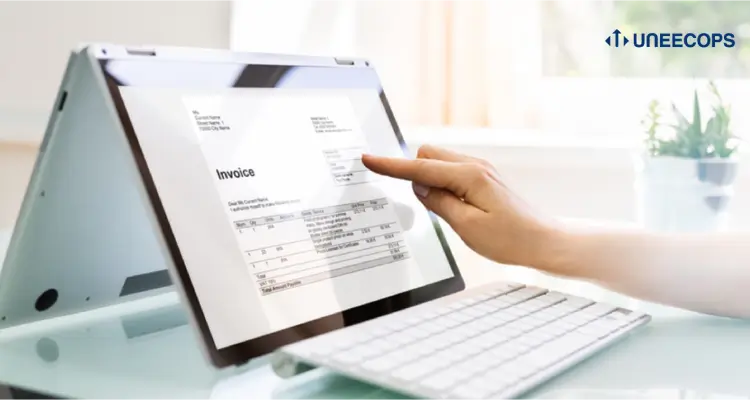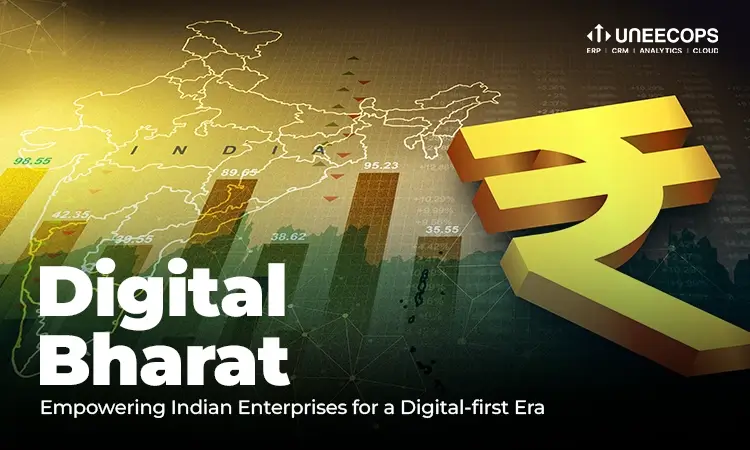The prefix ‘E’ has always brought revolution, be it with e-mail, e-banking or e-commerce. Now, it is ‘e-invoicing’ that this is gaining traction. Every company nowadays has to adhere to e-invoice limit if they fall under the e-invoice applicability turnover.
So, here’s the latest e-invoice limit update: Businesses with an annual turnover exceeding 5 crores will be mandated to issue e-invoices and will fall under the e-invoicing applicability. (w.e.f. 1st August, 2023.)
E-invoice applicability turnover under GST started in October 2020 and was made mandatory for enterprises with a turnover of over Rs 500 crore. This threshold was brought down slowly and the aggregate turnover for e-invoicing applicability is now 5 crores.
Confused? Puzzled or worried?
Let’s understand what e-invoice in GST is, e-invoicing eligibility and take it from there.
MEANING
What is e-invoice in GST?
Ever since the e-invoice mandate was approved by the GST council, there is a continued buzz in the business community. Invoice is a critical document and e-invoicing is a reform related to it. To comply, it is important for enterprises to know about it and accordingly prepare for it.
E-invoicing or ‘electronic invoicing’ refers to electronically uploading B2B invoices in a standard format that machines can read.
E-invoice would help sync the sales data of a business vendor to the corporate clients, which is used to claim the tax credit. This would help in faster and more accurate detection of false ITC claims and expand the GST base.
Is e-invoicing mandatory? What is the e-invoicing eligibility criteria?
We’ve already established this above. Let’s reinforce e-invoice is applicable to whom and from when.
‘E-invoicing mandatory’ was announced on 1st October 2020 for all businesses whose aggregate turnover was over Rs.500 crore in previous financial years from 2017-18 to 2019-20. From 1st January 2021, e-invoice applicability applied to businesses exceeding the turnover limit of Rs.100 crore. E-invoice applicability was further extended to companies with a turnover limit of 50 and 20 crores. The government then made e-invoice applicability mandatory for 10 crore turnover businesses from October 1, 2022. The same – e-invoice applicability for 5 crore turnover companies has come into effect from 1st August 2023.
IMPLICATIONS
So, now that online billing in GST is mandatory, what does this exactly mean?
The move aims to digitize a higher volume and greater value of transactions, bring transparency in sales reporting, automate data entry work, reduce mismatches and errors as well as ease compliance.
Taxpayers must generate invoices on their billing software or internal system and report them to the invoice registration portal (IRP)–a requisite to obtain input tax credit (ITC).
We’ve got more clarity now. Now, the big question, ‘Is e-invoice eligibility applicable for all categories of business?’
The answer is no. As per e-invoice limit guidelines, the following categories of registered persons will be exempted from e-bill GST, irrespective of the turnover:
- A banking company or insurer or financial institution, including an NBFC
- A Goods Transport Agency (GTA)
- A registered supplier of passenger transportation services
- A registered supplier of cinematographic films in multiplex services
- An SEZ unit
- Local authority and government department
Other than this, all businesses have to comply with the e-invoicing applicability guidelines. But, why? What is the benefit of online billing in GST?
Advantages of e-invoicing
- One-time generation and reporting of B2B invoices
- E-bill GST keeps data ready for GST filing
- Real-time invoice and information tracking
- Faster input tax credit availability
- Lesser input tax credit verification problems
- Digitization of the tax filing process
- Better management of tax invoices
- Fewer chances of fraud as data is available to tax authorities in real-time
- Elimination of fake GST invoice generation
Automated invoice reporting is an opportunity for both taxpayers and tax authorities to better the processes, as well as streamline and optimize the compliance functions. To make e-invoicing work, the taxpayer must generate invoices directly in their accounting or ERP system. Then this must be reported to IRP (either via B2B API connection or through GST Suvidha Provider (GSP)).
The IRP validates the invoice data and assesses the GST system for duplicates. The next step is providing a unique IRN (invoice reference number), signing the invoice digitally, and adding a QR code. It is then sent to the invoice issuer in a signed JSON format.
On receipt, the taxpayer can update the invoice data in the company’s ERP system and email the same to the recipient.
Now, the challenge.
With the announcement and government mandate, now companies with a turnover above 5 cr have to align their internal systems to the GST e-invoice turnover limit process. This requires:
- Internal management as per norms
- Meeting all requirements of electronic invoicing
- Connecting e-invoicing to their internal ERP systems
But the fact is that e-invoice turnover limit is yet another step towards the Government’s goal of a digital economy. This does not mean organizations have sleepless nights aligning workforce or GST software to conform to the new regime.
The advanced and GST-ready ERP SAP Business One helps businesses smoothly transition to a system with integrated capabilities.
RECOMMENDATIONS
SAP Business One helps solve various Indian compliance and global compliance challenges by streamlining several activities
Changes to tax obligations such as GST e-invoice limit can be disruptive: companies are required to alter their existing business processes, which might have been optimized for long periods. To offer enterprises an arsenal of abilities to cater to these challenges, SAP offers compliance add-ons as per Indian and global tax mandates.
This is a stepping-stone for businesses to transition from manual processes to real-time electronic documents. SAP e-invoicing applicability compliance enables B2B enterprises to stay abreast in the digital world. With its streamlined tax compliance approach and embedded automation, SAP solutions allow modern-day organizations to maximize efficiency, reduce risks and costs, and improve the sustainability of tax operations. There is also an opportunity for contract management, using which one can bid for more contracts when you organize your internal ERP and CRM systems to provide you robust business projections.
With SAP Business One, SAP supports companies to transform their perceived tax burden into value-added growth opportunities. Now, taking in the context of e-invoice turnover limit:
SAP Business One: Enabling 5 cr+ and 10 cr+ businesses to prepare for the e-invoicing start date
The e-invoicing eligibility is established. Now, 5 cr+ turnover and 10 cr+ turnover businesses are required to update e-invoices in a designated format without any manual intervention. SAP Business One automates the process and enables users to directly print sales invoices from within the SAP ecosystem itself, which has the IRN and QR code issued by the IRP.
With SAP Business One, data reconciliation becomes very easy as we move towards e-invoicing. It helps create precise invoices and gives them unique identification numbers according to statutory requirements, ensuring the elimination of errors. This makes the process of GST e-invoicing effortless.
Other advantages of SAP Business one for e-invoicing include:
- Generate B2B e-invoices with IRN
- Perform bulk operations
- Make e-invoicing more accurate and fast
- Make invoices in real-time- from any time and anywhere
- Access invoices at the click of a button
- Generate e-invoices in a few clicks and minutes
- Auto-save all e-invoices
Take the ease of use to a whole new level!
The road forward with Uneecops
As SAP Business One proves an asset for GST compliance, Uneecops has been helping businesses adapt to the fast-changing business landscape. The aim is to enable enterprises swiftly and rapidly adopt the latest standards and practices. Uneecops experts guide businesses in effortlessly integrating e-invoicing with SAP Business One and making the system ready as per GST standards. As SAP Business One Platinum Partners, we are helping businesses take the big leap while bidding adieu to inaccuracies and frequent glitches during GST submissions. All businesses falling under e invoice applicability turnover are covered by Uneecops + SAP B1.
Specialized solutions to help e invoice turnover limit SMBs adopt digital and simplify the GST regime
Uneecops, as a preferred partner of SAP Business One helps you manage your e-invoicing applicability, e-way bill and file GST return (with vendor reconciliation) seamlessly. We have collaborated with ClearTax and integrated the solution with SAP Business One to help SMBs transition to e-invoicing hassle-free. Follow the link to learn more: https://www.uneecops.com/erp/e-invoicing-gst/
It’s a wrap, and your turn to make the move.
With digital transformation being the ‘new normal’ of the 21st century, it is time to switch to e-invoicing. Say hello to Uneecops and comply with the incoming e-invoicing mandate for businesses with 5+ crore turnover!







